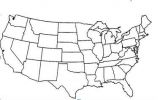| « Thirty Somethin" | Catch-Up Soup » |
The Power of Reductionist Thinking
In his 1963 Pulitzer Prize-winning opus, Anti Intellectualism in American Life, historian Richard Hofstadter charted the cultural history of the peculiar rejection of the intellectual in American society from the colonial era through the mid-20th Century. Hofstadter argued that utilitarianism and a simplistic devotion to practicality, coupled with the egalitarian nature of a democratic society, infused American life with a suspicion of intellectual pursuits. In politics, religion, business and education, the intellectual life has been viewed as the exclusive possession of an elite, and therefore in conflict with the country’s underlying democratic principles. The divergence of the intellectual from the bulk of society seems only to have increased with the transformation of the country from a rural, agrarian base to an industrial (now technological), urbanized society. The advent of the modern Information Age has not mitigated this feature of the American character in any way.
The evidence of this persistance is everywhere: Climate-change denial; bizarre theories of the ability of the female reproductive system to prevent conception in cases of rape; or the efforts to include creationism or "intelligent design" as scientific theories in public education. As I wrote last week about the econofeud ("Catch-Up Soup"), non-economist pundits equate their opinions on fiscal and monetary policy with the results of the scholarly studies of highly-regarded economists. Even the news media conflate fact with particular points of view with disturbing regularity. What is significant about this phenomenon is the apparent lack of self-correction.
Earlier this week, Josh Barro, now writing for the Business Insider blog, had his typically useful take on a current meme traveling across Twitter-dom, the "derp". The term refers to the act of clinging to prior beliefs in the face of contravening evidence. Barro makes the point that derping is problematic in public policy debates.
Public policy is often a nexus of American anti-intellectual bias. The sequester is an apt example as it typifies the outcome of reductionist thinking about governmental fiscal policy. Lacking any basis in sound economic theory, it derives its flimsy justification from the "common sense" idea that deficit spending is somehow wrong. All the complexities of macro-economics have been jettisoned and nuanced discussions of these matters derided. And, of course, even as evidence is produced that shows the sequester is a drag on economic growth, the derps cling to their half-formed ideas about the deficit and debt. In the aftermath of the second greatest economic catastrophe in the nation's history, we are witnessing the ultimate triumph of reductionist thinking. The ascedancy of the Tea Party, the buy-in to a scorched-earth approach to spending cuts by politicians on both the right and left, and the relentless braying coming from these same poliitcians about the need to rein in government spending are simplistic reactions to complex issues.
We may truly be witnessing death by derp.
(The cynic in me sees the hawking of such policies as purposeful, an obscurant distraction of a financially-battered public while a small elite steals away with the goodies. That, however, requires a longer discussion on another day.)

